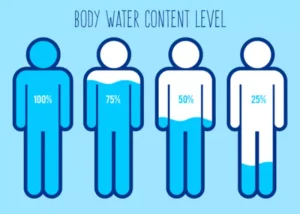Addiction Counseling

These groups can be offered to family members or other concerned persons and attended with the person in recovery. Listening for statements that imply self-efficacy when discussing behavior change. For individuals in recovery, self-efficacy statements may be geared toward the ability to successfully recognize cues and triggers, handle high-risk situations, and manage recurrence of substance use–related problems.
Couples and Family Therapy
They focus on socially supportive communication and the exchange of skills through shared experience. And NA®, are some of the most widely available community supports for people seeking recovery from problematic substance use. Despite the perception of colleges and universities as party environments, many safe and sober initiatives exist on campuses throughout the country. These can be invaluable for individuals in recovery who are returning to education. Collegiate recovery programs (CRPs) include counseling and mutual-help groups and increase the availability of sober living options for those who want to live on or near campus.
Public health definitions
- For some clients, counselors will only need to provide names and contact information.
- Mindfulness and acceptance-based approaches have been less rigorously studied but have been effectively used with individuals in recovery.
- Helping clients develop proactive strategies and improve their emotional regulation skills is an important component of recovery.
This approach encourages better understanding of a client’s potential trauma history and builds trust between the counselor and the person in recovery. It can also help counselors substance abuse counseling adapt interventions to ensure they are addressing the unique needs of the person in recovery. Referring clients to peer recovery supports requires ethical considerations.
Overview of Trauma-Informed Approaches
- They might need support learning about the importance of cleaning kitchens after eating, maintaining clean and tidy living areas, keeping up with home maintenance, and regularly doing their laundry.
- As a starting point, counselors can ask their client about their eating habits, including if they would like to change these habits or if they are comfortable with their weight.
- The main advantage of digital recovery support is that it offers social and emotional support for people in recovery that would otherwise not be possible.
- As discussed above, motivation to change can increase when reasons for change and specific goals become clear.659 Motivation can decrease when a person feels doubt or ambivalence about change.
An addiction counselor (substance abuse counselor) provides expert care and support to people who have substance use disorder (SUD), like alcohol use disorder or opioid use disorder. BLS data shows that the median annual wage for substance abuse, behavioral disorder, and mental health counselors was $48,520 as of May 2021. The lowest https://ecosoberhouse.com/ 10 percent of counselors reported earning around $30,870, while the highest 10 percent earned more than $77,980. It is important to note that addictions counselor salaries can vary by industry. An addictions counselor treats clients who live with or experience addiction to alcohol or drugs, paving powerful paths to recovery.

Benefits of MI in Recovery From Substance Use–Related Issues

Financial incentives can include cash for clients submitting substance-free urine samples and chances to win prizes after completing recovery activities, including attendance at counseling sessions, recovery group participation, and maintenance of activities that promote overall well-being. In addition to a biopsychosocial assessment, counselors should conduct a functional analysis of situations and warning signs that place clients at high risk for recurrence of problematic substance use. Functional analysis is a crucial step in CBT that evaluates the reasons behind why clients engage in specific behaviors and what factors contribute to maintaining those behaviors.
If the client is an adult, their primary care provider may be called a family physician or doctor, internist, general practitioner, nurse practitioner, or physician assistant. They can usually change providers if they are dissatisfied with their care. Even individuals who do not have chronic diseases should receive preventive screenings and care to ensure they remain healthy. Substance abuse counselors must be good listeners with strong empathy and the ability to set boundaries.
Understand the levels of care available for treating problematic substance use. Discussing counselor responses to warning signs of a possible recurrence of use. Highlighting sociocultural considerations in recovery-oriented counseling.
Therefore, it’s imperative that students take the time to research their state requirements and ensure that they meet the qualifications to become a fully licensed professional counselor. Students who want to end up working in private practice should be aware that there may be additional post-license requirements. Depending on their educational background, students can choose one of two pathways to earning a master’s degree in counseling.
- Collegiate recovery programs (CRPs) include counseling and mutual-help groups and increase the availability of sober living options for those who want to live on or near campus.
- For clients with poor oral health issues, fluids are again important for hydration, along with encouraging proper oral hygiene, and possibly considering softer foods.
- While it can be overwhelming to acknowledge and seek help, it’s important that you do — and know that you’re not alone.
- Behavioral therapies can also enhance the effectiveness of medications and help people remain in treatment longer.
Harm reduction strategies are also highly effective in supporting safer substance use behaviors. As a first step, counselors can identify what kinds of resources and supports are available. To do this, they can develop a community-based asset map, or a strengths assessment of a community, which includes its services and resources as well as gaps.1366 This map can help inform their work with clients by allowing them to gather information about which resources may help them in the community. Understanding the four types of social support1367 (emotional, instrumental, informational, and affiliational) can help counselors as they identify community resources through this mapping process (the text box below outlines the four types).

